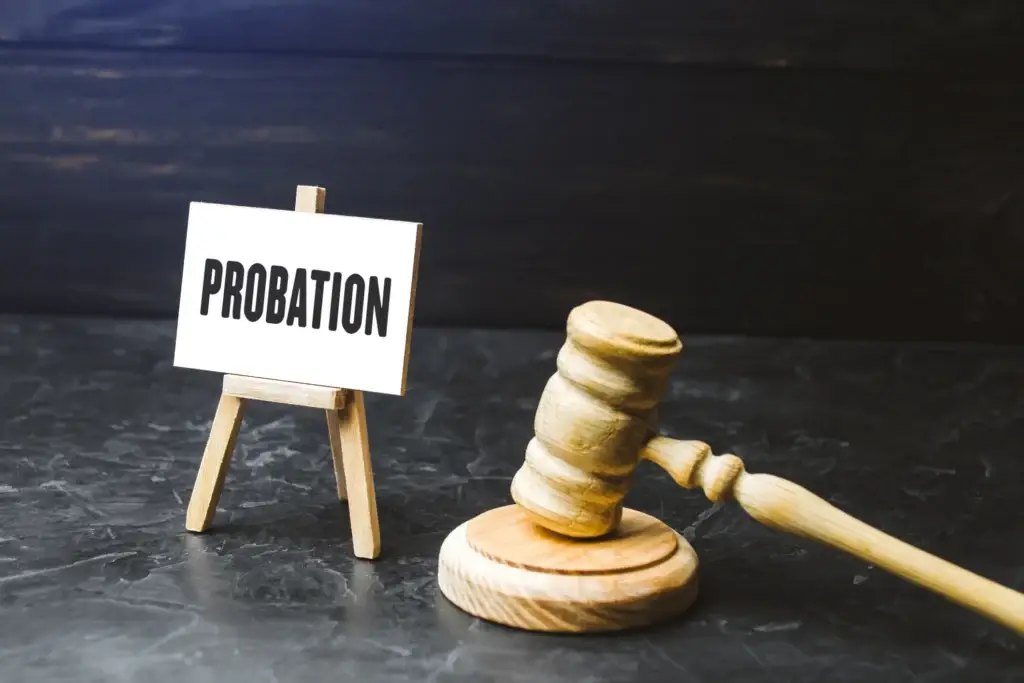April 21, 2025
Alcohol Awareness Courses and Your Driving Record

Facing the aftermath of an alcohol-related driving offense, such as a DUI (Driving Under the Influence) or DWI (Driving While Intoxicated), is a challenging experience that brings significant legal and administrative consequences. One of the most immediate and pressing concerns for individuals in this situation is understanding how the incident will permanently affect their driving record and what steps are necessary to regain their driving privileges. Alongside potential fines, license suspension or revocation, and other penalties, you will very likely be required by the court or the Department of Motor Vehicles (DMV) to attend and successfully complete a court-ordered alcohol awareness class.
Naturally, many people wonder about the precise connection between fulfilling this educational mandate and its impact on their official driving history. Does taking the class somehow lessen the severity of the offense on your record? Can it expedite the process of getting your driver’s license back? This guide offers a comprehensive and clear look at the crucial relationship between completing a state-approved alcohol awareness course and managing the consequences on your driving record, providing essential information and practical guidance to help you fulfill your requirements and move towards restoring your driving privileges responsibly.
Understanding Your Driving Record and the Impact of Alcohol-Related Offenses
Your driving record is an official document maintained by your state’s Department of Motor Vehicles (DMV) or equivalent licensing authority. It serves as a historical account of your interactions with traffic laws and incidents on the road. This record typically includes:
- All traffic violations (speeding tickets, running stop signs, etc.)
- Details of any accidents you were involved in.
- Information regarding license suspensions, revocations, or cancellations.
- Crucially, any DUI/DWI charges, convictions, or related alcohol offenses.
- Records of required actions taken, such as attending mandated education or intervention courses.
Alcohol-related driving offenses, particularly DUI or DWI convictions, are considered among the most serious infractions and have a profoundly negative and long-lasting impact on your driving record. Such offenses are not easily removed and typically remain visible on your official record for many years – often ranging from 3 to 10 years or even longer, depending on the state’s specific laws and whether it was a first-time or repeat offense.
How a DUI/DWI Specifically Affects Your Driving Record:
A conviction for DUI or DWI almost invariably results in a cascade of negative consequences reflected on your driving record, including:
- Immediate Suspension or Revocation of Your Driver’s License: This is a standard administrative penalty. The length of the suspension or revocation varies significantly based on state laws, your Blood Alcohol Content (BAC) at the time of arrest, and any previous alcohol-related driving history.
- Accumulation of Demerit Points: Most states use a points system to track driving violations. DUI/DWI convictions typically add a significant number of points to your record, which can lead to further administrative actions, such as extended license suspension or the requirement to attend additional driver improvement courses.
- Steep Increases in Car Insurance Premiums: Individuals with a DUI/DWI on their record are considered high-risk drivers by insurance companies, leading to dramatically increased insurance rates, difficulty obtaining coverage, or even cancellation of existing policies.
- Potential Requirement for an Ignition Interlock Device (IID): In many states, particularly after a DUI conviction, an IID may be mandated as a condition for obtaining a restricted license during suspension or a requirement for full license reinstatement. This device requires you to provide a breath sample before the vehicle will start.
- Mandatory Completion of an Alcohol Awareness Course or DUI School: This is a standard requirement imposed by courts and/or the DMV as a necessary step to restore or maintain driving privileges after an alcohol-related driving offense.
For a detailed exploration of the legal process and requirements specifically for individuals facing DUI/DWI charges, see our guide on Alcohol Awareness Classes for DUI/DWI Offenders.
The knowledge gained from the class about the effects of alcohol, the risks of impaired driving, and strategies for responsible decision-making aims to reduce the likelihood of repeat offenses.
Can Completing an Alcohol Awareness Class Help Your Driving Record?
It is essential to clarify upfront: completing a court-approved alcohol awareness course does not erase or directly remove the DUI or DWI conviction itself from your official driving record. That record of the offense will remain for the period prescribed by state law. However, successfully completing this mandated education is a critical component in navigating the consequences and can significantly improve your situation in several crucial ways, particularly regarding your ability to legally drive.
Key Ways Alcohol Awareness Classes Help:
- Essential for License Reinstatement: This is perhaps the most direct and vital impact. In almost all cases where a driver’s license has been suspended or revoked due to an alcohol-related driving offense, completing a court-approved alcohol awareness course is a mandatory prerequisite for getting your license back. Courts and DMVs require official proof of course completion (your certificate) before they will even consider reinstating your driving privileges. You simply cannot legally drive again without fulfilling this educational requirement. The class is a key piece of the complex compliance puzzle alongside serving suspension time, paying fines, installing an IID, etc.
- Potential for Mitigating Penalties (Including Points): While not universally applicable in all states, successfully completing a recognized alcohol awareness program may be viewed favorably by courts or licensing authorities. In some specific jurisdictions, proactive completion could potentially lead to a reduction in the number of points assessed against your driving record for the offense or help prevent the accumulation of additional points that could trigger further penalties. This is jurisdiction-specific and should be verified with your local court or DMV.
- Potential for Reduced Insurance Premiums (or Mitigation of Increases): While a DUI/DWI conviction will undeniably cause your insurance rates to increase significantly, completing a state-approved alcohol awareness course may demonstrate to your insurance provider that you are taking steps towards responsible behavior and understanding the risks. Some insurance companies offer discounts or are willing to mitigate the severity of the premium increase upon receiving proof of successful course completion. It’s crucial to contact your specific insurance provider to inquire about their policies. For more details on potential insurance impacts, read: Alcohol Awareness Classes and Insurance Discounts.
- Fulfilling Court and Probation Conditions: Completing the alcohol awareness class is often a direct order from the judge or a mandatory condition of your probation or a negotiated plea agreement. Successfully fulfilling these legal requirements is vital to avoiding further legal complications, such as probation violations, additional fines, or even jail time. Compliance here is paramount and indirectly supports your ability to manage your driving situation without added legal burdens. Understanding why courts mandate these classes sheds more light on their purpose: Reasons Courts Order Alcohol Awareness Classes.
- Demonstrating Accountability and Commitment to Change: Courts, probation officers, and DMV officials look for signs that an offender understands the gravity of their actions and is committed to making positive changes. Timely enrollment and successful completion of a mandated alcohol awareness class are tangible ways to demonstrate accountability, remorse, and a sincere effort towards rehabilitation and responsible decision-making regarding alcohol and driving.
In essence, while the class doesn’t erase the historical fact of the offense from your record, it’s a necessary and beneficial step required to satisfy legal obligations, regain driving privileges, and potentially mitigate some financial consequences.
How Alcohol Awareness Classes Influence Court and DMV Decisions
The educational content and the act of completing an alcohol awareness class play a significant role in the decisions made by courts and licensing agencies regarding your case and driving privileges.
- Demonstrating Accountability: By enrolling in and successfully completing the course, you actively demonstrate to the court and DMV that you are taking responsibility for your actions and engaging in the required steps towards understanding the dangers you posed. This proactive behavior is viewed favorably.
- Fulfilling Explicit Legal Requirements: Most states have specific statutes that require individuals convicted of DUI/DWI or related offenses to complete an approved alcohol education program before their driving privileges can be fully reinstated. Fulfilling these explicit legal requirements promptly ensures a smoother administrative process with the DMV and quicker movement towards license restoration, provided all other requirements are met.
- Providing Essential Education: The knowledge gained from the class about the effects of alcohol, the risks of impaired driving, and strategies for responsible decision-making aims to reduce the likelihood of repeat offenses. Courts and DMVs see this education as a vital public safety measure.
What You Can Expect from a Court-Approved Alcohol Awareness Class
A legitimate, court-approved alcohol awareness course is structured to provide comprehensive education on topics directly relevant to preventing future alcohol-related incidents, especially those involving driving. Whether you take the class online or in-person Online vs. In-Person Alcohol Awareness Classes, the core educational content will typically include:
- In-Depth Educational Content:
- Alcohol’s Effects on Driving: Detailed, science-based information on how even small amounts of alcohol impair critical driving skills like reaction time, coordination, vision, judgment, and decision-making.
- Legal Consequences of DUIs/DWIs: A thorough review of state-specific DUI/DWI laws, penalties, the process of arrest and conviction, and the long-term administrative impacts on your driving record, license status, and personal life.
- High-Risk Situations and Responsible Decision-Making: Identifying common scenarios that lead to impaired driving, developing strategies to avoid these situations, promoting responsible drinking behaviors (if applicable and legal), and emphasizing the importance of planning for sober transportation alternatives.
- Understanding Addiction and Resources: Basic information about alcohol dependence, recognizing the signs of problematic use, and learning about resources available for assessment, counseling, or treatment if needed.
- Assessments and Certification:
- Courses typically include periodic quizzes and a final comprehensive test to verify your understanding and retention of the material. These are designed to reinforce learning, not trick you. For more details about testing, refer to our guide: Do Online Alcohol Awareness Classes Include Tests?
- Upon successful completion of the course and passing the assessments, you will receive an official certificate of completion. This certificate is the required proof you must submit to the court and/or DMV. Understanding its validity period is important for future needs: Alcohol Awareness Class Certification: How Long Is It Valid?
Choosing the Right Alcohol Awareness Class for Your Driving Record Requirements
Selecting a legitimate and accepted alcohol awareness class is paramount to ensure your certificate is recognized by the court and the DMV, allowing you to move forward with license reinstatement and compliance.
- Verify State and Court Approval: Always choose a provider that is explicitly approved by the state authority (like the DMV or a state department) or the specific court/probation office that mandated your class. Do not assume a class is accepted just because it’s online or covers alcohol topics. Providers like Courseable openly display their accreditation and provide verification documentation. Use resources like How to Verify if an Online Alcohol Awareness Class is Legitimate and Finding a State-Approved Alcohol Awareness Course Online to confirm legitimacy before enrolling.
- Ensure the Course Meets the Required Duration: Your court order or DMV instructions will specify the required number of hours for the class (e.g., 4-hour, 8-hour, 12-hour). Make sure the course you choose is approved for that exact duration. Understanding the differences in course lengths can be helpful: 8 Hour vs 12 Hour Alcohol Awareness Classes.
- Consider the Format (Online vs. In-Person): Choose the format that best fits your schedule, learning style, and ability to complete the course efficiently to get your certificate to the DMV promptly.
Tips for Successful Course Completion and License Reinstatement
Choose the format that best fits your schedule, learning style, and ability to complete the course efficiently.
To maximize your chances of a smooth process and work towards improving your driving record situation after an offense, follow these tips related to your alcohol awareness class:
- Enroll Promptly: As soon as you receive the court order or DMV instruction, identify an approved provider and enroll in the required class. The sooner you complete it, the sooner you can submit the certificate and begin the process of license reinstatement. Waiting can lead to delays and potential non-compliance issues.
- Stay Consistent (Especially with Online): If you choose an online course, schedule regular, distraction-free time to work through the material. Don’t wait until the last minute.
- Engage Actively with the Content: Take the class seriously. Pay attention, take notes, and reflect on how the information applies to your past behavior and future choices. Active engagement improves learning and makes passing assessments easier.
- Understand the Submission Process: Know exactly where and how you need to submit your certificate of completion – to the court, your probation officer, the DMV, or all of the above. Do not assume the provider sends it automatically.
- Promptly Submit Your Certification: As soon as you successfully complete the course and obtain your certificate, submit it immediately to all required authorities. Delays in submission can cause significant delays in getting your license back.
Explore our detailed advice for successful course completion here: Tips for Successfully Completing Your Alcohol Awareness Class.
No. Completing the class does not erase the DUI or DWI conviction from your official driving record. The record of the offense will remain for the period specified by your state’s laws. However, completing the class is typically a mandatory requirement to regain your driving privileges and demonstrates accountability to the court and DMV.
The length of time a DUI or DWI remains on your driving record varies significantly by state and depends on whether it was a first or subsequent offense, and if it was a misdemeanor or felony. It typically ranges from 3 to 10 years or longer, and in some states, serious offenses can remain permanently.
In some jurisdictions, successful completion of a state-approved alcohol awareness course may lead to a reduction in the number of points associated with the offense or prevent the accrual of additional points. This is not a universal rule, however, and depends entirely on the specific laws and policies in your state or county. It will not remove the conviction itself.
Your insurance rates will almost certainly increase significantly after a DUI/DWI. While completing the class won’t typically lower your rates back to pre-offense levels, some insurance companies may offer a discount or mitigate the severity of the increase upon receiving proof of successful completion, viewing it as a step towards responsible behavior. Always confirm directly with your insurance provider.
Generally, no. In most cases, you are responsible for obtaining your certificate of completion from the course provider and submitting it to the required authorities (the court, probation officer, and/or DMV) yourself. Always confirm the exact submission process with the requiring authorities.
Submission methods vary. You may need to mail a physical copy, deliver it in person, submit it through an online portal, or provide it to your attorney or probation officer who will submit it on your behalf. Check your court order or DMV instructions for the specific accepted method.
No, the required length of the alcohol awareness class is determined by state law and the severity of the offense you committed; completing the mandated duration is what matters for fulfilling the compliance requirement related to your driving record, not the length itself having a different impact on the record.
While the primary purpose of the class in this context is related to driving privileges and DMV requirements, successfully completing all court-ordered mandates, including educational programs, demonstrates compliance and accountability to the court. This can be viewed favorably by judges and probation officers, which relates to the overall management and potential resolution of your criminal case, even if it doesn’t erase the conviction itself. Many general questions about the process are answered on our FAQ page: Alcohol Awareness Class FAQs: Your Questions Answered.
Yes, minors who receive DUI charges also face license suspension/revocation and are typically required to complete specific alcohol education programs designed for underage offenders as a condition for license reinstatement. For guidance specific to underage offenses, see: Guide to Alcohol Awareness Classes for Underage Drinking Offenses.
The validity period for a certificate used for DMV purposes varies by state, but it is commonly accepted for between two to five years from the date of completion. You should confirm the specific validity period with your state’s DMV, as you may need to complete a refresher or retake the course if the certificate expires before you fulfill all reinstatement requirements or if future issues arise. For a detailed explanation of certificate validity, see: Alcohol Awareness Class Certification: How Long Is It Valid?.
Final Thoughts: Essential Education for Recovery and Responsible Driving
While receiving an alcohol-related driving offense conviction is a serious matter that will impact your driving record for a significant period, successfully completing a court-mandated alcohol awareness class is a necessary and fundamentally important step in the process of regaining your driving privileges and demonstrating a commitment to responsible choices. The class itself doesn’t erase the past, but obtaining that certificate is often the key that unlocks the door to license reinstatement and helps you move forward.
By choosing a legitimate, state-approved provider and diligently completing the required education, you fulfill a critical legal obligation and gain valuable knowledge designed to prevent future incidents. Frame this requirement not just as a penalty, but as an essential part of your journey towards recovery and becoming a safer, more responsible driver.
Courseable is dedicated to providing accessible, affordable, and court-approved online alcohol awareness classes that meet state standards. We are here to help you fulfill your requirements efficiently so you can focus on navigating the path to license reinstatement and moving forward confidently.
Ready to take the necessary step towards restoring your driving privileges and demonstrating responsibility?
Enroll Today in Courseable’s Court-Approved Online Alcohol Awareness Classes. Courseable’s Court-Approved Online Alcohol Awareness Classes.

Understanding Your Alcohol Awareness Court Order: A Step-by-Step Guide to Interpretation and Compliance
Read More »Disclaimer: Always Consult with Legal and State Authorities
This article is provided for general informational and educational purposes only and does not constitute legal advice, medical advice, or professional counseling. Laws and specific requirements regarding alcohol awareness classes, driving records, license reinstatement, and the impact of offenses vary significantly by state, county, and individual case circumstances and are subject to change. You must always consult directly with your attorney, probation officer, the specific court involved in your case, or the relevant state Department of Motor Vehicles or licensing authority to confirm the exact requirements applicable to your specific situation, verify the acceptance of any course provider, and understand how your driving record is specifically affected. Ensure you choose an accredited provider whose certificate will be accepted.
Related Posts

Alcohol Awareness Classes and Probation: Understanding Your Requirements and Ensuring Compliance

How to Confidently Talk to Your Employer About a Court-Ordered Alcohol Awareness Class
Start Your Court Ordered Alcohol Class


